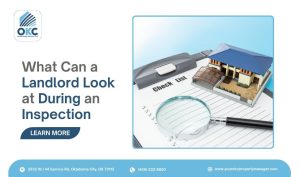Did you know that even unintentional mistakes in property management can lead to lawsuits costing you thousands of dollars? As a property owner, it’s crucial to understand that avoiding illegal property management practices that violate tenants’ rights isn’t just a matter of following the law—it’s also about safeguarding your financial stability and reputation.
Whether you’re managing a single-family home or a multi-unit property, your goal is to run a successful rental business. However, this success shouldn’t come at the expense of your tenants’ rights or well-being. Ensuring that you adhere to all relevant laws and regulations is crucial to protect your business and create a safe and respectful environment for your tenants.
In this article, I will discuss the most common illegal property management practices and provide property owners like you with the facts and arguments you need to avoid problematic behavior and run your business with integrity.
What Makes a Good Property Management Company?
Property management companies play a crucial role in the success of your real estate investments, ensuring properties are well-maintained, tenancies are smoothly managed, and rental income is optimized. Here are several key qualities and skills that make a good property manager:
- Strong Communication Skills
- Organizational Skills
- Knowledge of the Market
- Problem-Solving Abilities
- Attention to Detail
- Technical Proficiency
- Customer Service Orientation
- Ethical and Legal Knowledge
- Flexibility and Patience

- Strong Communication Skills: A good property manager must communicate effectively with tenants, property owners, and maintenance staff. They need to be clear, responsive, and professional in their communications, whether resolving disputes, explaining lease agreements, or providing updates on property maintenance.
- Organizational Skills: Property management involves juggling multiple tasks, such as scheduling repairs, conducting property inspections, managing lease renewals, and handling tenant move-outs. Good organizational skills are essential to keeping everything running smoothly and ensuring nothing falls through the cracks.
- Knowledge of the Market: Understanding the local real estate market is crucial for setting competitive rent prices, marketing properties effectively, and advising property owners on potential investments or improvements. A good property manager stays informed about market trends, rental rates, and the local economy.
- Problem-Solving Abilities: Challenges and issues are part of managing properties, whether dealing with unexpected maintenance issues, resolving tenant complaints, or navigating legal and regulatory requirements. A good property manager is resourceful and can think on their feet to find effective solutions.
- Attention to Detail: From reviewing lease agreements to inspecting properties for maintenance needs, attention to detail is critical. This ensures compliance with all legal standards and regulations, maintains property conditions, and satisfies tenant and owner expectations.
- Technical Proficiency: Today’s property management involves significant technology, from property management software to online payment systems. A good property manager is comfortable using technology to streamline operations, improve communication, and enhance record-keeping.
- Customer Service Orientation: Excellent customer service is key to retaining tenants and maintaining a positive reputation. A good property manager is attentive to tenant needs, responds promptly to concerns, and strives to create a positive living environment.
- Ethical and Legal Knowledge: Understanding the legal aspects of property management, including landlord-tenant laws, fair housing regulations, and lease agreements, is vital. A good property manager operates ethically and compiles with relevant laws and regulations.
- Flexibility and Patience: Finally, the nature of property management demands flexibility and patience. From adapting to new regulations to dealing with difficult tenants, a good property manager maintains a calm and professional demeanour under pressure.
Also Read: What does a property manager do
10 Illegal Property Management Practices and How You Can Avoid Them
Managing properties involves a range of responsibilities, from legal to financial and ethical guidelines. You must be aware that landlord-tenant laws vary by location, emphasizing the importance of understanding these differences to ensure operating within legal boundaries, fair tenant treatment, and avoiding unfair rental practices. Here are the 10 illegal property management practices and advice on how to avoid them.
- Not Making Reasonable Accommodations
- Retaliating Against Tenant Complaints
- Ignoring Maintenance for Livable Conditions
- Invading Tenant Privacy
- Unauthorized Rent Increases Are Taboo
- No Suddenly Changing Terms Mid-Lease
- Skipping Eviction Procedures
- Mishandling Tenant Belongings After Eviction
- Failing to Keep Accurate Records
- Overlooking Required Licenses and Permits
1. Not Making Reasonable Accommodations
The Fair Housing Act prohibits discrimination against tenants and applicants based on various protected classes, including disability. You must provide reasonable accommodations, as needed, to ensure individuals with disabilities can fully use and enjoy their rental. Examples of accommodations under fair housing act include allowing assistance animals even if there is a “no pets” policy or making modifications like installing grab bars.

As a landlord or property manager, you must engage with applicants or tenants upon request to discuss potential accommodations. Denying a reasonable accommodation request without a legitimate justification could be considered illegal discrimination. Consult legal guidance if you are unsure how to handle an accommodation request properly.
2. Retaliating Against Tenant Complaints
Did you know? In most areas, landlords are prohibited from retaliating against tenants who exercise their rights, such as reporting code violations, requesting repairs, or complaining about rent increases. Retaliation can take various forms, including unlawful evictions, rent hikes, withholding repairs, increased scrutiny, or creating a hostile environment.

It’s crucial to address maintenance issues promptly and professionally to prevent such claims and build positive tenant relationships. Do not threaten or punish tenants for legitimate complaints. Keep thorough documentation of all housing standards and rental issues. Respecting tenant rights is a legal obligation and the best approach for building a successful and sustainable rental business.
3. Ignoring Maintenance for Livable Conditions
You are legally required to maintain their rental properties in a habitable condition, meeting minimum standards outlined in housing codes. This means maintaining essential systems like plumbing, heating, electrical wiring, security features, and the overall physical structure of the property. Major defects, such as water leaks, faulty electrical wiring, or broken windows that compromise tenant health or safety, must be addressed immediately.

Neglecting maintenance and allowing properties to fall into disrepair violates tenants’ rights to a livable residence. To stay compliant, routinely inspect units, promptly address reported issues, and perform preventative upkeep. Consider proactive steps like maintenance schedules for critical systems.
[Also Read: 7 Ways to Reduce your OKC Rental Property Maintenance Costs]
4. Invading Tenant Privacy
You have a responsibility to respect tenants’ privacy in their homes and regarding personal information. This includes providing proper notice and obtaining permission before entering the unit, except for emergencies or legal action. You cannot install monitoring devices without consent, search tenant belongings, or share private details publicly.

Always obtain tenant permission before any non-emergency entries, limit access to repairs and inspections only, refrain from snooping, and maintain confidentiality of tenant information. Clearly outline notice protocols in leases to set proper expectations upfront. Ultimately, your access and oversteps should align with regulations.
[Also Read: Can Landlords Ask for Bank Statements for a Rental Application]
5. Unauthorized Rent Increases Are Taboo
Most states require advance notice, mostly 30-60 days, for any rent increase during a lease term or when transitioning to month-to-month. Some locales also limit annual increases. Mid-term leases or month-to-month rent hikes without proper notice are illegal rent gouging.

Tenants have rent control and consumer protection laws in these situations. Avoid rent increase disputes by sending clear, timely written notices. Rent increases should occur at natural transition points like renewal and follow standard guidelines. Take the time to research your city and state’s laws to make sure any hike complies. Communication and education are best for avoiding accusations of unauthorized rent increase.
6. No Suddenly Changing Terms Mid-Lease
When a written lease is in place, you cannot unilaterally change the agreed-upon terms during the lease period without tenant consent. This applies to rental amounts, fees, rules, key policies, or any provision outlined in the signed contract.

Lease changes are only valid if mutually agreed upon in writing. Stick to the original terms until lease expiration or renewal unless dire emergencies allow temporary policies with tenant input and approval. Avoid conflicts by honoring signed agreements to keep good faith with renters.
7. Skipping Eviction Procedures
Evicting tenants illegally is risky, exposes you to lawsuits, and harms tenants. Tactics like changing locks without a court order, removing belongings, shutting off utilities, threatening physical removal, or failing to provide proper notice are all illegal. Additionally, it’s crucial to handle security deposits legally and ethically, ensuring any deductions and returns comply with state laws.

To avoid issues, document lease violations and non-payment, provide proper written eviction notices, and allow tenants to address the problems. Always involve the courts in formal eviction proceedings, and never attempt self-help removal evictions. Proper handling protects you and maintains tenant rights.
[Also Read: A Landlord’s Guide to Avoiding Wrongful Eviction]
8. Mishandling Tenant Belongings After Eviction
If a former tenant leaves property behind after an official eviction, you must reasonably store and protect these items for a set period before disposal. Throwing possessions out or keeping them without providing former tenants an opportunity to reclaim them is the unlawful conversion of property.

Document exactly what was left behind. Store securely and provide written notice of how to retrieve belongings by a particular deadline, then dispose of unclaimed items properly. Taking or profiting from abandoned property opens liability risks for you and real estate agents.
9. Failing to Keep Accurate Records
Financial documentation concerning properties and tenants must comply with tax, accounting, and recordkeeping standards. Operating informally or without documentation exposes businesses to scrutiny from tax agencies and regulators.

Proper records of rental income, expenses, and tenant information, including contact data and lease terms, payments, security deposits, communications, condition reports, and more, are critical to protecting you against legal problems. Consult experts to stay compliant with complex regulations.
10. Overlooking Required Licenses and Permits
Depending on location, certain rental properties require business licenses, certificate of occupancy permits, boarding house licenses, or other operating approvals. You risk fines or loss of rental income if properties violate these requirements.

Research all relevant local, city, and state regulations and obtain any mandated documentation before renting. Maintain licenses, undergo periodic inspections, and promptly address issues to avoid legal issues stemming from unpermitted rentals. Regulations vary from location to location.
Recommended: Can a landlord sue a property management company?
Final Thoughts
Staying compliant with fair housing and landlord-tenant laws builds a strong foundation for successful property management. This reduce legal risks and foster positive relationships with your tenants, leading to longer tenancies and fewer vacancies. If you’re doubtful about any regulations, consider consulting a qualified real estate attorney or property management professional.
FAQs on Illegal Property Management Practices
How long do I have to address tenant repair requests?
Most states require requested non-urgent repairs to be addressed within 30 days, though some set shorter timelines for issues impacting health/safety. Urgent problems like plumbing leaks or electrical hazards must be fixed immediately. Maintain open communication on repair timelines and address valid maintenance requests.
Can tenants withhold rent if I don't make repairs?
In some areas, yes – tenants can legally withhold a portion of rent and pay it into an escrow account if you fail to address serious habitability issues after proper notification. However, this specific legal process varies by location, so educate yourself on proper procedures or consult local housing authorities.
What are some examples of tenant screening criteria you should avoid?
You cannot discriminate based on source of income like subsidies, require excessive deposits or application fees, reject solely due to credit checks without consideration of other factors, or impose overly restrictive criteria unrelated to rental qualifications like marital status requirements. Stick to objective screening standards that directly relate to the ability to pay rent and care for the property.
Can tenants sue me for violating laws?
Yes, tenants can take civil legal action against you if they believe their practices breached contracts or housing statutes. They can recover damages, attorneys’ fees, or costs associated with remedies, like moving expenses. Good preventative measures are the surest way to avoid lawsuits.

Author
Scott Nachatilo is an investor, property manager and owner of OKC Home Realty Services – one of the best property management companies in Oklahoma City. His mission is to help landlords and real estate investors to manage their property in Oklahoma.
 (
(









